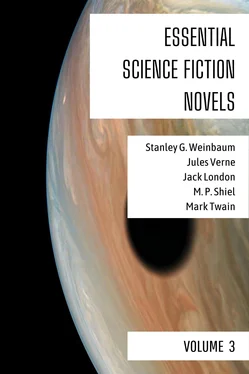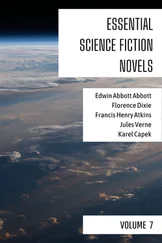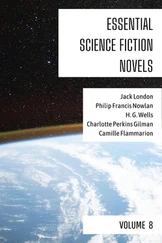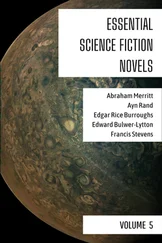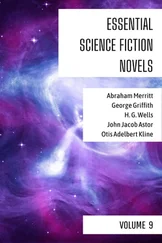Barry Pain endows a bulldog with the power to foretell the future, to reveal disaster and oppose it. Zero, in the story by that name, is a common bulldog greatly valued because he has a supernatural knowledge of any evil that threatens those he loves, and by his canine sagacity he forestalls fate. In the end, in protecting his master’s little child, he is bitten by a mad dog, whose coming he has supernaturally foreseen, and he commits suicide as the only way out of the difficulty. Arthur Machen, in The Bowmen and Others , tells varied stories of supernatural vision associated with the war.
The Door in the Wall , by H. G. Wells, depicts a man who in his dreamy childhood wanders into a secret garden where he is shown the book of his past and future, but who afterwards is unable to find the door by which he enters, though he seeks it often. Later in life, at several times when he is in a special haste to reach some place for an important appointment, he sees the door, but does not enter. Finally he goes in to his death. This is an instance of the suggestive supernaturalism associated with dreams and visions.
The use of mirrors in supernatural vision is significant and appears in a number of ways in modern fiction. Scott’s My Aunt Margaret’s Mirror is an early instance, where the magician shows the seeker a glass wherein she sees what is taking place in another country, sees her husband on his way to the altar with another woman, sees a stranger stop the marriage, and witnesses the fatal duel. Hawthorne has used mirrors extensively as symbolic of an inner vision, of a look into the realities of the soul. For instance, when poor Feathertop, the make-believe man, the animated scarecrow, looks into the mirror he sees not the brave figure the world beholds in him, but the thing of sticks and straw, the sham that he is, as the minister shrinks from the mirrored reflection of the black veil, symbol of mystery that he wears. Hawthorne elsewhere speaks of Echo as the voice of the reflection in a mirror, and says that our reflections are ghosts of ourselves. Mr. Titbottom, in George William Curtis’s Prue and I , who has the power of seeing into the souls of human beings by means of his magic spectacles and catching symbolic glimpses of what they are instead of what they appear to be, beholds himself in a mirror and shrinks back aghast from the revelation of his own nature. Barry Pain’s story, referred to in another connection, shows a mirror wherein a supernatural visitant reveals to a young man the supreme moments of life, his own and those of others, pictures of the highest moments of ecstasy or despair, of fulfillment of dear dreams.
The Silver Mirror , by A. Conan Doyle, represents a man alone night after night, working with overstrained nerves on a set of books, who sees in an antique mirror a strange scene re-enacted and finds later that the glass has once belonged to Mary, Queen of Scots, and that he has seen the murder of Rizzio. Brander Matthews also has a story concerned with re-created images in an old mirror. The looking-glass in fiction seems to be not only a sort of hand conscience, as Markheim calls it, but a betrayer of secrets, a revealer of the forgotten past, a prophet of the future as well. It is also a strange symbol to show hearts as they are in reality, reflecting the soul rather than the body. It is employed in diverse ways and is an effective means of supernatural suggestion, of ghostly power.
The Fourth Dimension is another motif that seems to interest the writers of recent ghostly tales. They make use of it in various ways and seem to have different ideas concerning it, but they like to play with the thought and twist it to their whim. Ambrose Bierce has a collection of stories dealing with mysterious disappearances, in which he tells of persons who are transferred from the known, calculable space to some “non-Euclidean space” where they are lost. In some strange pockets of nowhere they fall, unable to see or to be seen, to hear or to be heard, neither living nor dying, since “in that space is no power of life or of death.” It is all very mysterious and uncanny. He uses the theme as the basis for a number of short stories of ghostly power, which offer no solution but leave the mystery in the air. In some of these stories Bierce represents the person as crying out, and being heard, but no help can go, because he is invisible and intangible, not knowing where he is nor what has happened to him. H. G. Wells, in The Plattner Case , which shows an obvious influence of Bierce, gives a similar case. He explains the extraordinary happenings by advancing the theory that Plattner has changed sides. According to mathematics, he says, we are told that the only way in which the right and left sides of a solid body can be changed is by taking that body clean out of space as we know it, out of ordinary existence, that is, and turning it somewhere outside space. Plattner has been moved out into the Fourth Dimension and been returned to the world with a curious inversion of body. He is absent from the world for nine days and has extraordinary experiences in the Other-World. This happens through an explosion in the laboratory where he is working, similarly to Wells’s story of Davidson, where the infringement on the Fourth Dimension is the result of a lightning stroke.
Mary Wilkins Freeman deals with the Fourth Dimension in The Hall Bedroom , where the boarder drifts off into unknown space, never to return, from gazing at a picture on the wall, as has happened in the case of previous occupants of the room. Richard Middleton employs the same idea in a story of a conjurer who nightly plays a trick in public, causing his wife to seem to disappear into space. One night she actually does so vanish, never to be seen again. Other instances of the form may be found in recent fiction. H. G. Wells uses the theme with a different twist in his Time Machine . Here the scientist insists that time is the Fourth Dimension, that persons who talk of the matter ordinarily have no idea of what it is, but that he has solved it. He constructs a machine which enables him to project himself into the future or into the past, and sees what will happen or what has happened in other centuries. He lives years in the space of a few moments and has amazing adventures on his temporal expeditions. But finally the Fourth Dimension, which may be thought of as a terrible Fate or inescapable destiny awaiting all who dally with it, gets him too, for he fails to return from one of his trips. Another story tells of a man who by drinking quantities of green tea could project himself into the Fourth Dimension.
A number of stories of scientific supernaturalism are concerned with glimpses into the future. The Time Machine , just mentioned, with its invasions of the unknown space and time, its trips into eternity by the agency of a miraculous vehicle, illustrates the method. The scientist finds that he can travel backwards or forwards, accelerating or retarding his speed as he will, and get a section of life in any age he wishes. He discovers that in the future which he visits many reforms have been inaugurated, preventive medicine established, noxious weeds eradicated, and yet strange conditions exist. Mankind has undergone a two-fold involution, the soft conditions of life having caused the higher classes to degenerate into flabby beings of no strength, while an underground race has grown up of horrible depraved nature, blind from living in subterranean passages, cannibalistic while the others are vegetarian. The lower classes are like hideous apes, while the higher are effeminate, relaxed. The traveler escapes a dire fate only by rushing to his machine and returning to his own time. Samuel Butler suggests that machines will be the real rulers in the coming ages, that man will be preserved only to feed and care for the machines which will have attained supernatural sensibility and power. He says that mechanisms will acquire feelings and tastes and culture, and that man will be the servant of steel and steam in the future, instead of master as now; that engines will wed and rear families which men, as slaves, must wait upon.
Читать дальше
